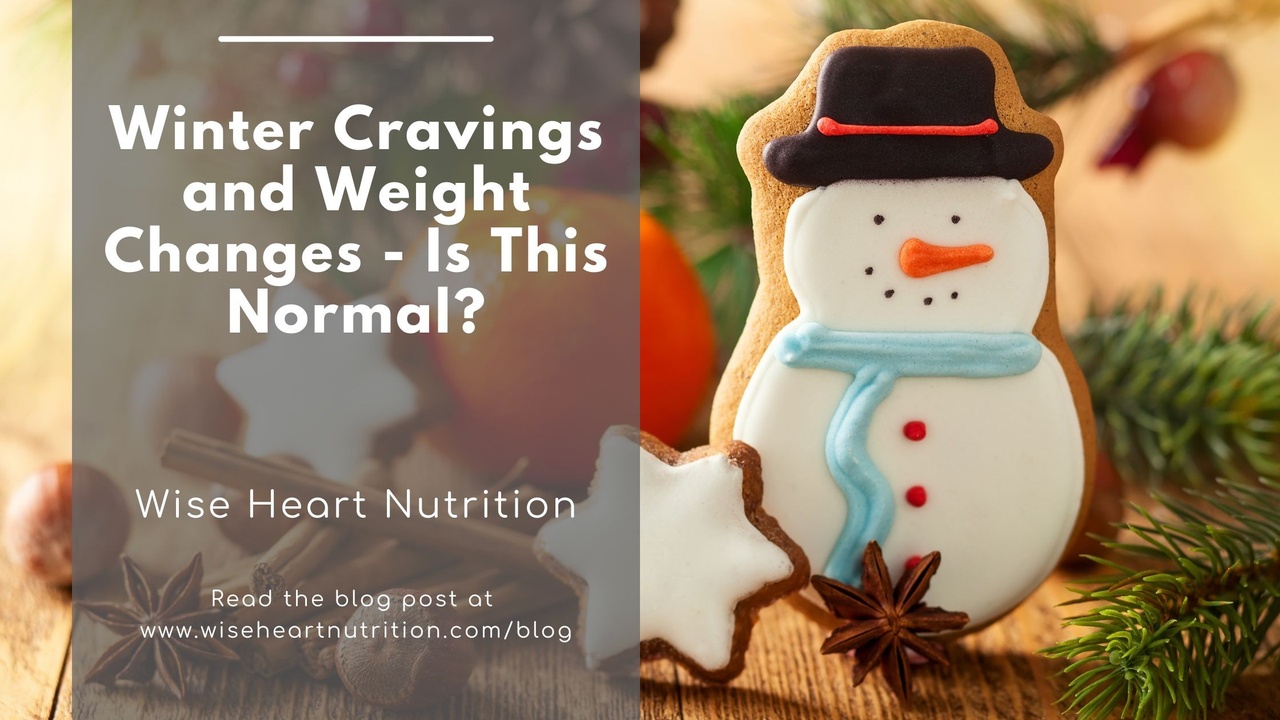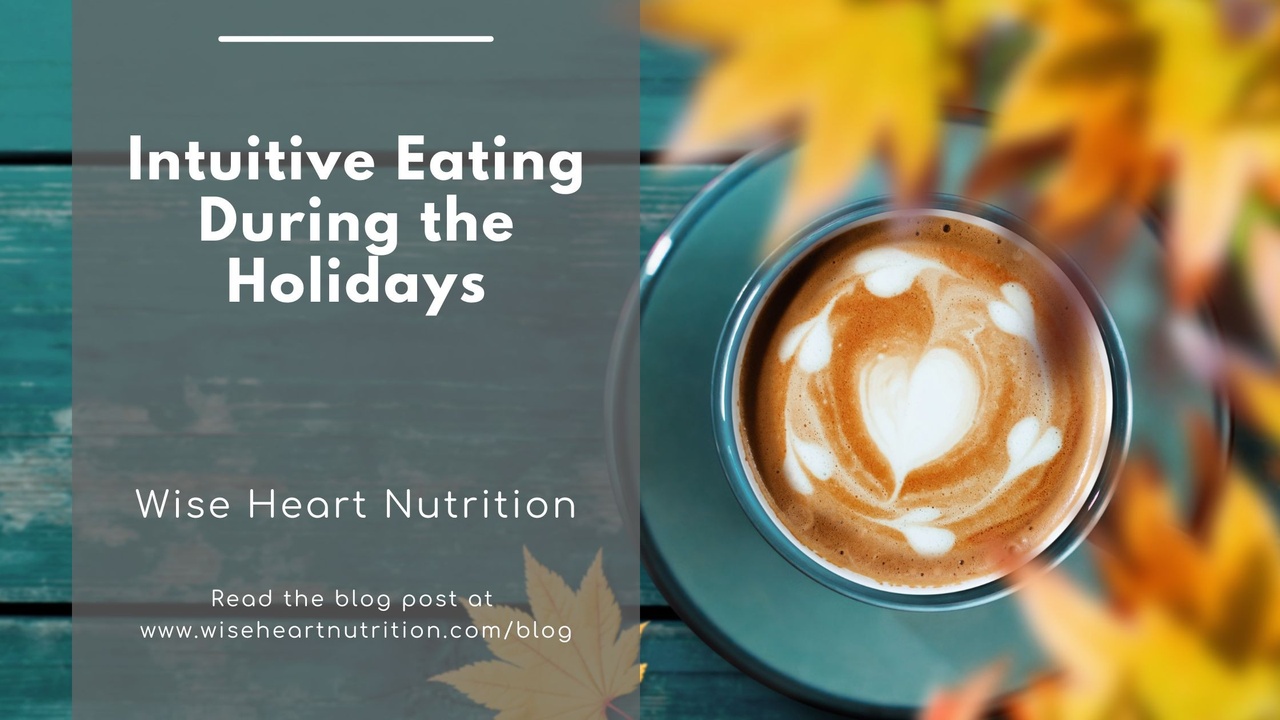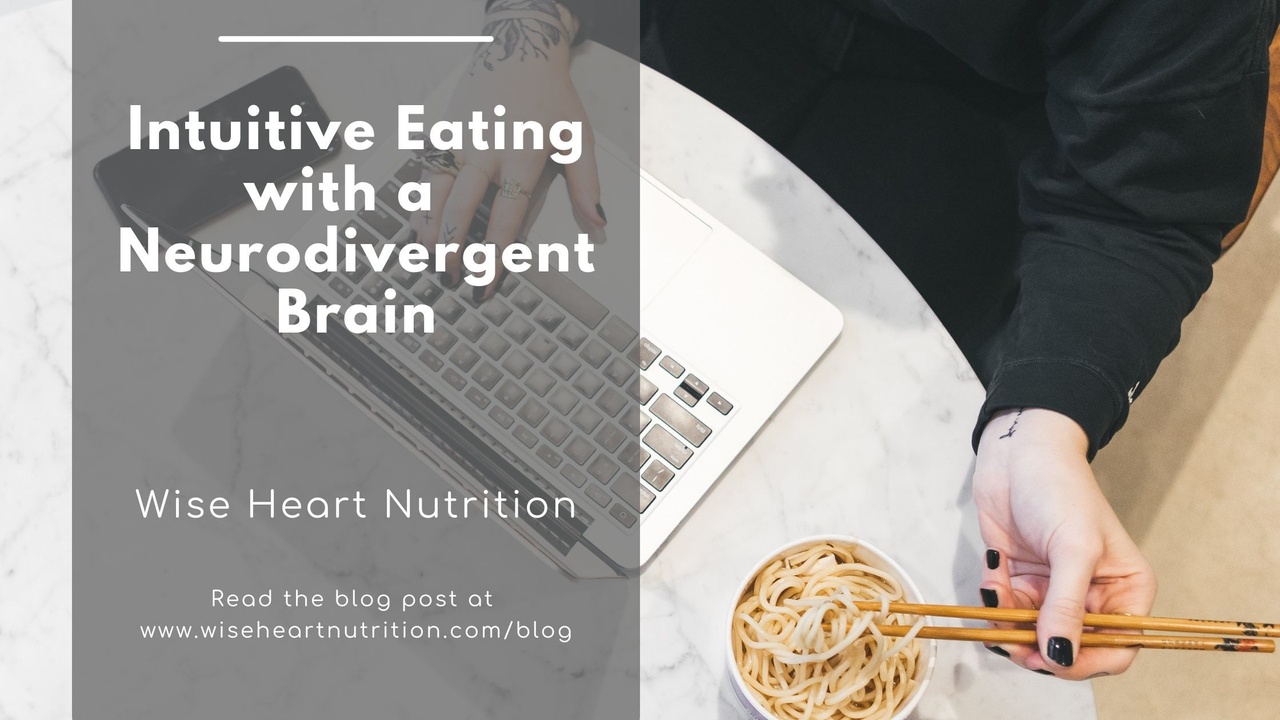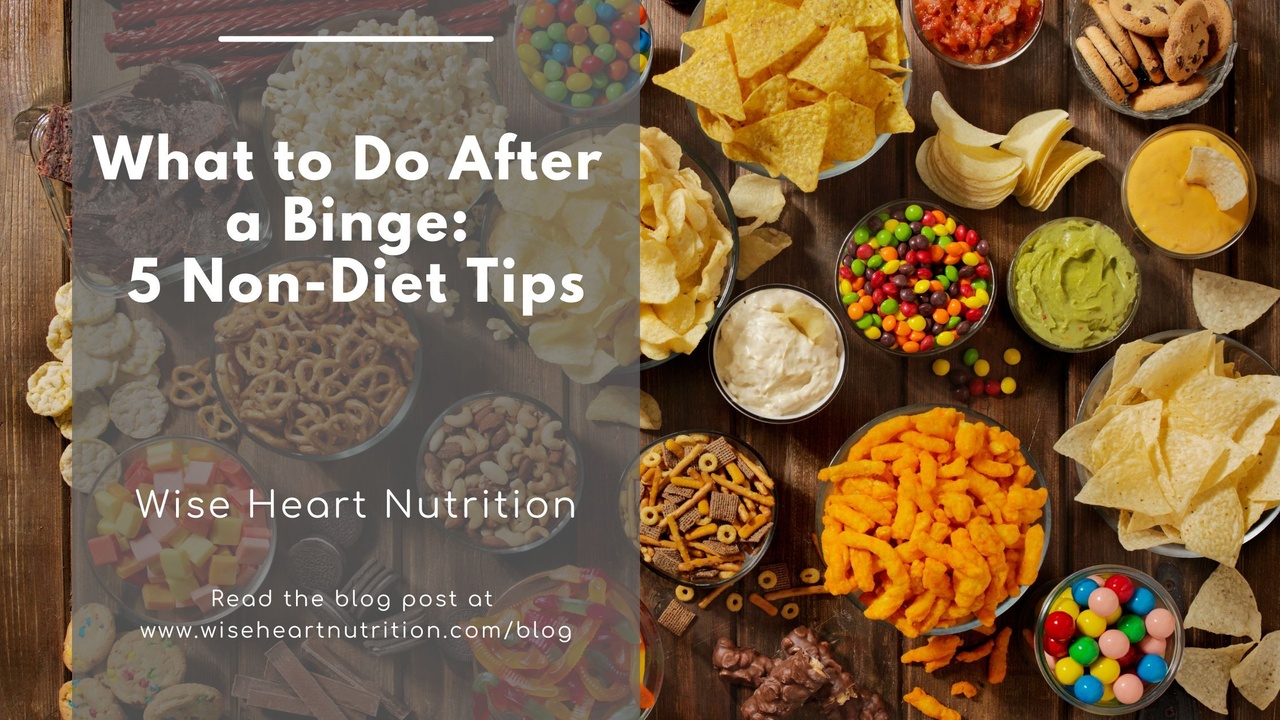Wise Heart Nutrition Blog:
All Things Anti-Diet, Intuitive Eating, and ADHD
What Is Normal Eating? Take the Quiz!

You may have made your way to this page because you feel confused about what “normal” eating even means. You have probably endured years, or decades, of messages like “you should eat this, not that”, “that is a bad food”, and “you can have as much of this guilt-free (read: diet) food as you want”. If you have been trying desperately to lose weight by following various diets, sticking to food rules, or eating according to any kind of external plan, your hunger and fullness cues might be totally out of whack. And on top of all of this, trying to wade through the ocean of nutrition and “health” information available on the internet and social media is completely overwhelming to sort through. Whew! No wonder you’re feeling confused!
Well, you landed in the right place! We have created a normal eating quiz (guide, checklist, assessment - or whatever you want to call it) to provide you with a jumping off point for bringing more aspects of normal eating into your relationship with food...
Why and How to Make New Year's Resolutions that Aren't About Weight

Did you just see your tenth (or ten millionth) content piece about “new year, new me”? Let’s all say it together - ugh! It’s time for a new year celebration again, and with that comes all the diet industry ads and allll the pressure to make new year’s resolutions around health and body size (and just like every year, they come with that golden promise that “this time, you will make it work”!). Before you start your goal list (or don’t), can we invite you in for a little chat on why you should not make a new year’s resolution to lose weight?
Weight is not a behavior
Read that line again. Weight is not a behavior, and it’s not something you can directly control over the long term. Which means it’s not realistic to make a goal about controlling or changing weight. Research shows that there is little support for the notion that diets lead to lasting weight loss or health benefits. In fact, about 75% of weight and shape is determined by genetics, with much of the remaining percenta...
Why Does Eating For Pleasure Matter So Much?

Whether you're a newcomer to intuitive eating or a seasoned vet, pleasure in food can sometimes still feel like a dirty word. Allowing and enjoying pleasure in your eating experience goes against everything diet culture stands for, like self-control, denial of pleasure, and avoidance of "bad" foods.
The intuitive eating principles describe pleasure in food as one of the most basic and important factors in feeling satisfied or content with food. So eating for pleasure is important, and in this blog, we'll answer 4 questions about food/eating and PLEASURE.
What are some of the psychological health benefits associated with food enjoyment?
- Pleasure of any kind (including pleasure from food) leads to a release of dopamine (a neurotransmitter) in the brain. Dopamine is often referred to as the “feel good chemical” because it activates the reward pathways in the brain, which helps to promote happiness, calmness, motivation, and focus.
- Thanks to diet culture, a big part of dis...
Is it Normal for My Weight and Cravings to Change in Winter?

Daylight Saving Time has just ended (ugh), and the days are getting much shorter, much darker, and much colder. In the words of some famous show - winter is coming.
Have you ever noticed changes in your food cravings or shifts in your body weight with the seasons? Like, how a bowl of hot tomato soup and grilled cheese sounds way more appealing than watermelon and salad in the winter. Or how clothing might fit differently from summer to winter? Let’s explore why and how cravings and weight can fluctuate in the winter - and the big question, is that normal?
The general answer to that question is - yes, this is normal! We crave different foods, and our bodies may go through subtle (and even not so subtle) changes during the winter months. There are a few reasons for all of this, including (but not limited to) traditional seasonality, thermic response, and psychological shifts during this time of year.
Below, we break down these 3 explanations of how and why winter can im...
5 Tips for Maintaining a Healthy Relationship with Food During the Holidays

Spooky season is already upon us, which means the holidays are here! But, what we are told is the “most wonderful time of the year” can often feel like the most stressful time of the year. We are bombarded with events centered on food, more social commitments, being around family, and surrounded by expectations to be in a “festive mood”, spend money, and listen to non-stop holiday music. And with all of these variables (and more) contributing to stress, comes anxiety, which can manifest in our relationship with food.
I wish I could tell you that the spirit of the holiday season would magically make it easy to maintain the healthy relationship with food that you have been working towards. Wouldn’t that be nice?
Despite all this doom and gloom (it is halloween, after all), you CAN navigate the holidays, eat intuitively, AND maintain a healthy relationship with food. Here are 5 tips to thrive during the holidays and preserve the relationship you have built with food and body!...
Rethinking Intuitive Eating for Neurodivergent (ADHD, Autistic) Brains

You may have heard (or even felt) criticism that intuitive eating is not possible for neurodivergent (i.e. ADHD, Austistic) people. At Wise Heart Nutrition, we reject that all-or-nothing thinking and invite you to explore our approach, and see how intuitive eating may need to be modified to be realistic for you. Here, we reframe each of the 10 principles of Intuitive Eating to be inclusive of neurodivergent folx. It might not feel ~magically intuitive~, but setting up systems that work for you in order to honor your body’s needs with compassion is 100% intuitive eating.
Reject the Diet Mentality... even if you don't diet.
While this is obviously easier said than done, everyone can embrace this first principle. It helps to learn more about how diets don’t work. Like how in 90-97% of cases, those who lost weight will gain it back within 2-5 years; and about ⅔ of people will gain back even more weight than they originally lost. The diet and weight loss industry made $78 BILLION ...
What to Do After a Binge: 5 Non-Diet Tips

So, you've just experienced a binge eating episode... What do you do now?
Many individuals, (especially ADHDers and folx with a history of dieting) struggle with binge or compulsive eating, and more often than not, the binge eating is automatically seen as the "problem" to be fixed. This often results in deprivation and restriction to "make up for overeating", which then leads to more binge eating. In addition, beliefs about not having "enough willpower" or "discipline", as well as guilt and shame, often show up after or during a binge due to our society creating the myth that you should, or even can, have control over food. Binge eating, negative emotions, and restriction often spirals into a vicious cycle, which can feel impossible to break.
The cycle (see graphic below) has several stages: the binge, the sense of emotional relief or numbness, the thoughts and feelings that follow, the planning, the disruption to the plan, and then back to the binge. Diet culture has taught us ...
Is Food Variety Important and Possible with a Neurodivergent Brain?

Are nutritional guidelines helpful for everyone?
Dietary variety (eating lots of different foods from all the different food groups) has long been considered a pillar of “good nutrition”. Blanket dietary recommendations like this are intended to support the greater population, but when these guidelines are solely focused on nutrients and physiological health, many groups of people get overlooked, left out, and placed in a disadvantaged position where health and wellness (when measured by whether or not a person is meeting a given recommendation) are essentially out of reach. And when these folx continue to chase after an impossible standard, other aspects of health (mental, emotional, relational, financial, etc.) suffer… and that isn’t really supportive of health at all.
When we talk about health, instead of trying to fit everyone into one box, we need to consider and understand what is REALISTIC, CONTEXTUAL, ACCESSIBLE, POSSIBLE, and SUSTAINABLE, and we need to recognize that...
